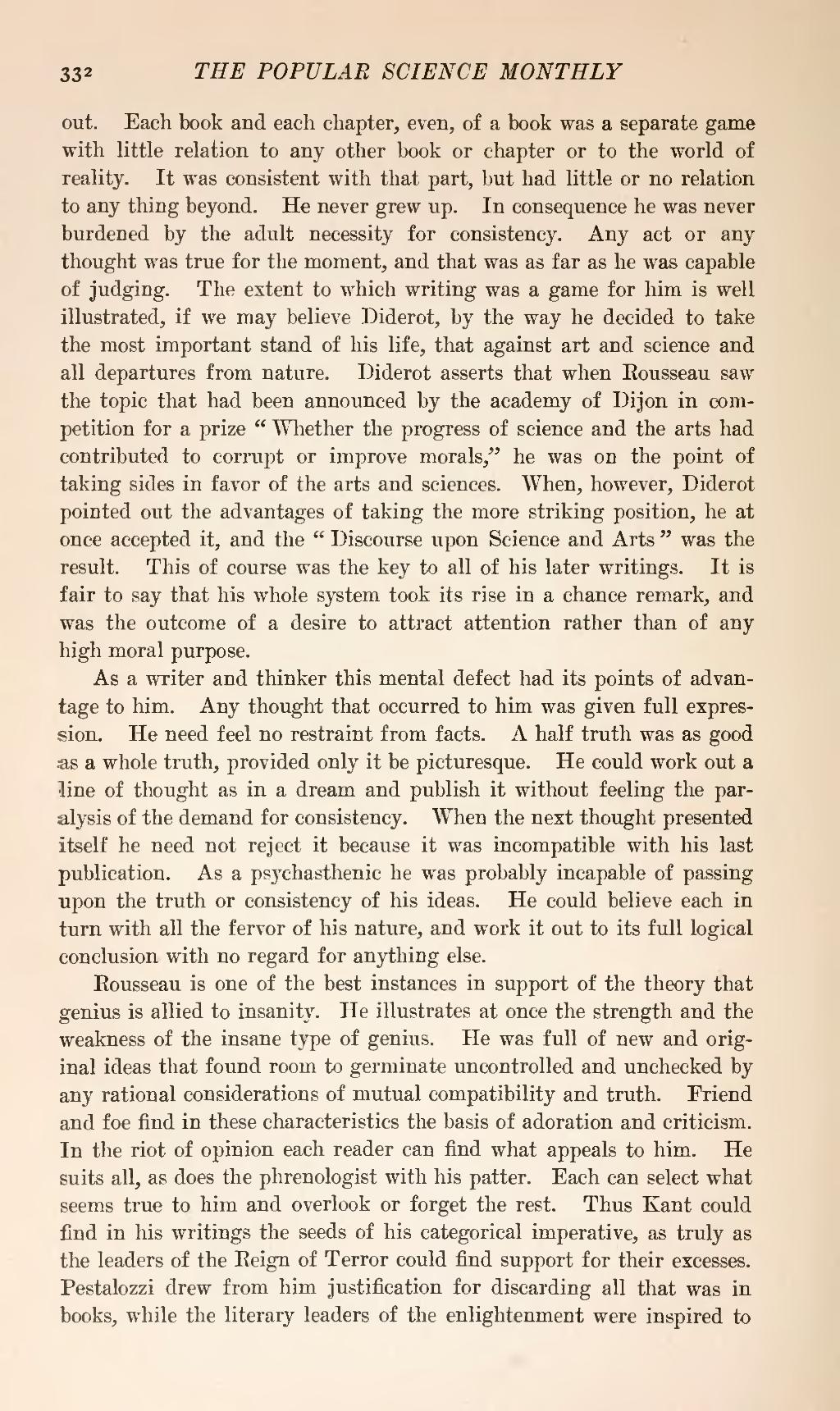out. Each book and each, chapter, even, of a book was a separate game with little relation to any other book or chapter or to the world of reality. It was consistent with that part, but had little or no relation to any thing beyond. He never grew up. In consequence he was never burdened by the adult necessity for consistency. Any act or any thought was true for the moment, and that was as far as he was capable of judging. The extent to which writing was a game for him is well illustrated, if we may believe Diderot, by the way he decided to take the most important stand of his life, that against art and science and all departures from nature. Diderot asserts that when Rousseau saw the topic that had been announced by the academy of Dijon in competition for a prize "Whether the progress of science and the arts had contributed to corrupt or improve morals," he was on the point of taking sides in favor of the arts and sciences. When, however, Diderot pointed out the advantages of taking the more striking position, he at once accepted it, and the "Discourse upon Science and Arts" was the result. This of course was the key to all of his later writings. It is fair to say that his whole system took its rise in a chance remark, and was the outcome of a desire to attract attention rather than of any high moral purpose.
As a writer and thinker this mental defect had its points of advantage to him. Any thought that occurred to him was given full expression. He need feel no restraint from facts. A half truth was as good as a whole truth, provided only it be picturesque. He could work out a line of thought as in a dream and publish it without feeling the paralysis of the demand for consistency. When the next thought presented itself he need not reject it because it was incompatible with his last publication. As a psychasthenic he was probably incapable of passing upon the truth or consistency of his ideas. He could believe each in turn with all the fervor of his nature, and work it out to its full logical conclusion with no regard for anything else.
Rousseau is one of the best instances in support of the theory that genius is allied to insanity. He illustrates at once the strength and the weakness of the insane type of genius. He was full of new and original ideas that found room to germinate uncontrolled and unchecked by any rational considerations of mutual compatibility and truth. Friend and foe find in these characteristics the basis of adoration and criticism. In the riot of opinion each reader can find what appeals to him. He suits all, as does the phrenologist with his patter. Each can select what seems true to him and overlook or forget the rest. Thus Kant could find in his writings the seeds of his categorical imperative, as truly as the leaders of the Reign of Terror could find support for their excesses. Pestalozzi drew from him justification for discarding all that was in books, while the literary leaders of the enlightenment were inspired to

